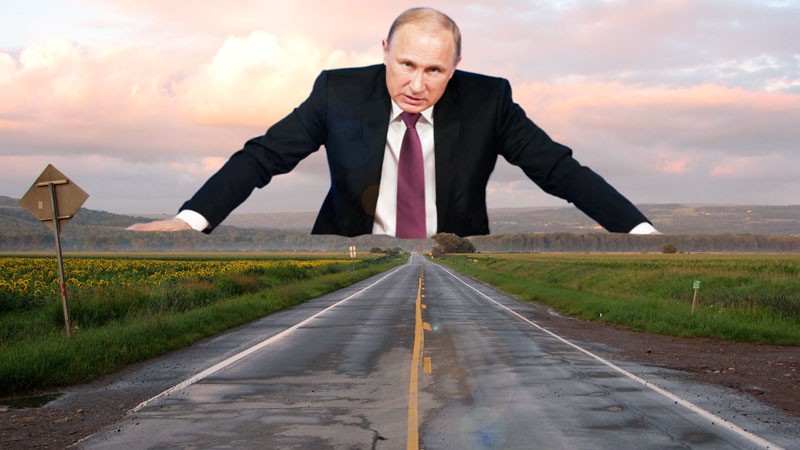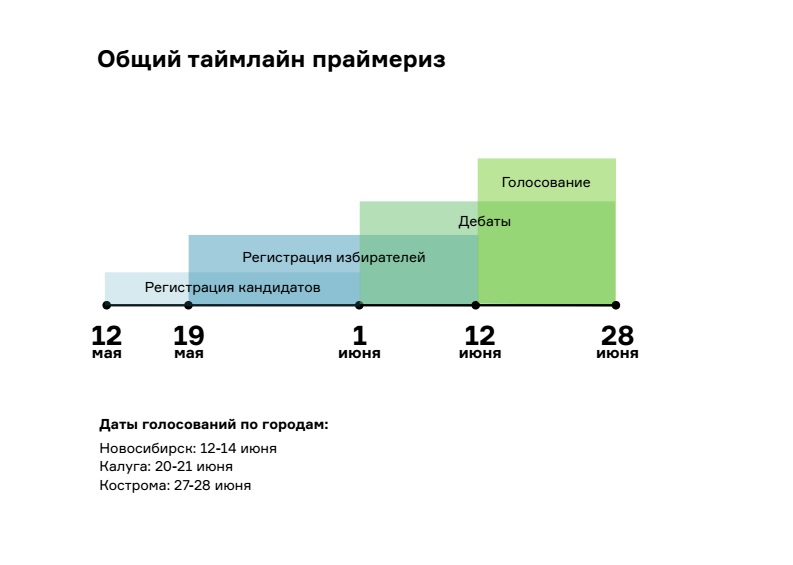
The road ahead for Russia's democratic opposition won't be an easy one. Images edits by Kevin Rothrock.
Two of Russia’s leading democratic opposition parties recently announced the formation of a “democratic alliance.” The Progress Party, led by charismatic anti-corruption crusader Alexey Navalny, and RPR-Parnas, co-chaired by former Prime Minister Mikhail Kasyanov and, until recently, the late Boris Nemtsov, will run a joint list of candidates in upcoming regional and national elections, party leaders said on April 17.
Объединение состоялось, у нас будет предвыборный список https://t.co/JBkYvPAooE pic.twitter.com/H7hdFH5rgy
— Партия прогресса (@Party_Progress) April 17, 2015
An alliance has been formed, and we will run on a joint ticket
An important factor in motivating this attempt by Russia’s beleaguered opposition to consolidate its strength and become a more serious political force was the shocking assassination of Boris Nemtsov in late February. In a radio interview with Ekho Moskvy, Navalny cited Nemtsov’s killing as a decisive factor in spurring the creation of the new political alliance.
The alliance
The parties will not formally merge, but rather form a broad democratic union, “in which social democrats, liberals, and conservatives of the European type can comfortably exist,” wrote Navalny on his website. Navalny further explained:
Это поразительно, огромное количество людей в стране считает, что Россия должна развиваться по европейскому пути и нам нужна сменяемая власть, независимые суды и свободные СМИ, а нет ни одной представленной в законодательной власти партии, которая поддерживает четыре этих простых вещи без пятисот оговорок.
It’s astounding that a huge number of people in this country believe that Russia should develop in a European way and that we need changeable leadership, an independent judiciary, and free media, yet there is not one representative currently in the legislature who supports these four these simple things without five hundred limitations.
Since the unveiling of the new alliance on April 17, several like-minded opposition forces in Russia have rallied to the coalition, like Democratic Choice, a registered party led by former Deputy Energy Minister Vladimir Milov. Two unregistered opposition parties, the December 5th party and the Libertarian Party, have also joined.
Готов подписать этот меморандум от имени @demvybor https://t.co/YtdbjOrx2k
— Vladimir Milov (@v_milov) April 17, 2015
I am ready to sign this agreement on behalf of [Democratic Choice].
The opposition movement Solidarnost and the Open Russia network have both pledged support for the new coalition, as well. Open Russia was created in September 2014 by former oil oligarch Mikhail Khodorkovsky and defines its mission as the promotion of European political values in Russia.
Мы поддерживаем решение РПР-ПАРНАС и Партии Прогресса о создании коалиции. «Открытая Россия» — общественная организация, и у нас не может быть своего отдельного списка на выборах. Мы поддерживаем список демократических кандидатов. И постараемся помочь сделать выборы демократическими.
Михаил Ходорковский
We support the decision of RPR-PARNAS and the Progress Party on the creation of a coalition. “Open Russia” is a societal organization, and we do not run our own candidates in elections. We support the list of democratic candidates. And we will try to help make elections democratic.
Mikhail Khodorkovsky
Things are already tough
The new coalition is already facing its first setback, however, following the Justice Ministry's decision on April 29 to cancel the legal registration of Navalny's political party, blocking it from participating formally in elections later this year. A lawyer for the Progress Party vowed to challenge the government's decision in the European Human Rights Court, saying he is confident that the party will regain its registration in time to compete in the December 2016 Duma elections.
Even before Navalny's party lost its registration, Yekaterina Vinokurova, a columnist for Znak.com, argued that Russia's opposition has failed to coalesce, despite the clarion call of Nemtsov's murder. Vinokurova says the Kremlin's adversaries have not been able to overcome mutual distrust, and will head to future elections in at least three different groups: the new coalition with Navalny and Kasyanov, the familiar and perennially unpopular political party Yabloko, and the Citizen Initiative party, which Navalny's new coalition has wooed with only partial success.
According to Vinokurova, one of the biggest disagreements between Russia's oppositionists is the role of Internet voting in primaries. “If they hold Internet-primaries,” she writes, “a lot of Muscovite bloggers will win spots, excluding promising politicians at the regional level.”
Explaining the new coalition
In a joint press conference on April 22, Milov, Navalny, and other leaders talked more about specific plans for the new alliance.
The coalition plans to run candidates on the RPR-Parnas ticket in Russia’s next Duma elections in December 2016. This move takes advantage of the fact that RPR-Parnas does not have to collect thousands of signatures to support each candidate, as is required of less established parties. In 2015, the alliance will run candidates in six regional and district elections in the Russian regions of Kaluga, Kostroma, and Novosibirsk.
Can #Russia’s Democratic Opposition Get Serious? http://t.co/Lww0pLA1fe @Party_Progress @navalny @v_milov @demvybor pic.twitter.com/wlxJWWkwMG
— Will Wright (@wi1lwright) April 25, 2015
The leaders also explained that all members of the coalition have agreed to form “people’s lists” for each election, and candidates will compete to win a spot on these lists through “open, honest primaries.” The successful introduction of primary elections, a common feature of political life in some countries absent in modern Russia, could be a notable way for the new alliance to get started on its goal of shaking up Russian politics.
A post published on Navalny's website on Monday further expands on the coalition's plans to hold primaries in order to choose candidates to run in legislative elections scheduled for September 2015 in the Russian regions of Kaluga, Kostroma, and Novosibirsk. The post details how the new alliance is already hard at work, setting up headquarters, recruiting manpower, and initiating all the background preparations needed to organize primaries and back candidates in the upcoming election cycle in these regions.

“General Timeline for Primaries.” Graphic: “Registration of candidates, Registration of voters, Debates, Voting.” “Voting dates by city: Novosibirsk: June 12-14, Kaluga: June 20-21, Kostroma: June 27-28.”
A coalition by primaries
A press primer issued by the alliance explains that any Russian who is a registered voter wishing to participate in the primaries can sign a declaration in their region affirming the coalition's basic political values, and submit the necessary paperwork that successful candidates will need for the general election. Primary voting will be held in June at polling stations set up by organizers, as well as online, the primer explained.
It remains to be seen whether or not this new democratic coalition can win seats in regional elections this fall, much less the 2016 Duma election. The alliance does appear to be a serious step by Russia's non-systemic opposition toward consolidating its strength, however, and this alone is a notable development in Russian politics today.








3 comments